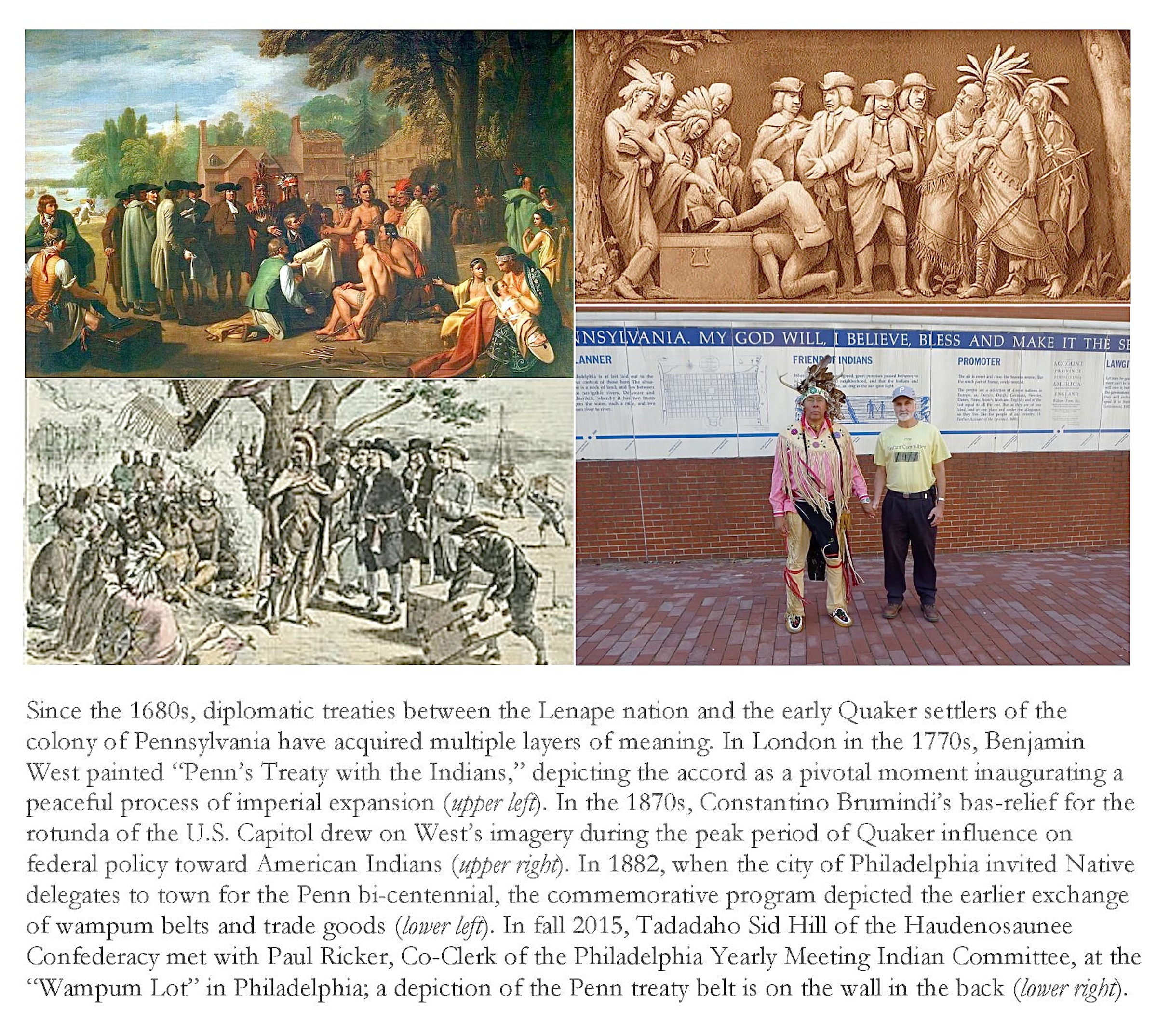Thursday, November 10, 2016 - 5:00pm to Saturday, November 12, 2016 - 7:00pm
Keynote Address: Class of 1978 Pavilion, Van Pelt Library
University of Pennsylvania
Philadelphia, Pennsylvania
Conference Sessions: Bryn Mawr College and Haverford College

Quakers, First Nations, and American Indians: from the 1650s to the 21st Century
"Quakers, First Nations, and American Indians from the 1650s to the 21st century" is an interdisciplinary conference examining relations between American Indians, First Nations and the Society of Friends. The 17th century founding of the colony of Pennsylvania was made possible by a unique accommodation among Lenape Indians and the Quaker settler colonials. During the 18th and 19th centuries, the Quaker reputation for maintaining good relations with American Indians gave them influence in federal policy on Indian Reservations, at boarding schools and in adoption programs. Quakers also reached out to Canadian officials and the First Nations of Canada. Over time, the patterns of interaction between Quakers, First Nations, and American Indians have taken many turns, sometimes giving rise to currents of distrust and disappointment, darkening the celebration of Pennsylvania’s mythical, original peace.
Keynote Address:
Jean Soderlund, author of Lenape Country: Delaware Valley Society before William Penn
“Reciprocity: The Lenape Origins of Delaware Valley Peace and Freedom”
Thursday, November 10, 5 pm
Class of 1978 Pavilion, Van Pelt Library
University of Pennsylvania
Conference Sessions:
Bryn Mawr College and Haverford College
Friday and Saturday, November 11-12, 10am-5pm
Locations to be announced soon.
Closing Keynote:
John Echohawk, Pawnee, Executive Director of the Native American Rights Fund
“A Shared Vision for Healing”
Haverford College.
Location to be announced soon.
The full schedule of presenters is now available on-line at the Conference website.
The conference is sponsored by Bryn Mawr College, the Center for Native American and Indigenous Research at the American Philosophical Society, Haverford College, and the McNeil Center for Early American Studies, with additional funding from the Friends Historical Association, the Friends Historical Library at Swarthmore College, and the Native American and Indigenous Studies Initiative at Penn.
For more information, including program, travel and lodging, and registration, see the Conference website.
For more information on the McNeil Center for Early American Studies, see the MCEAS website.

 Native American & Indigenous Studies at Penn
Native American & Indigenous Studies at Penn